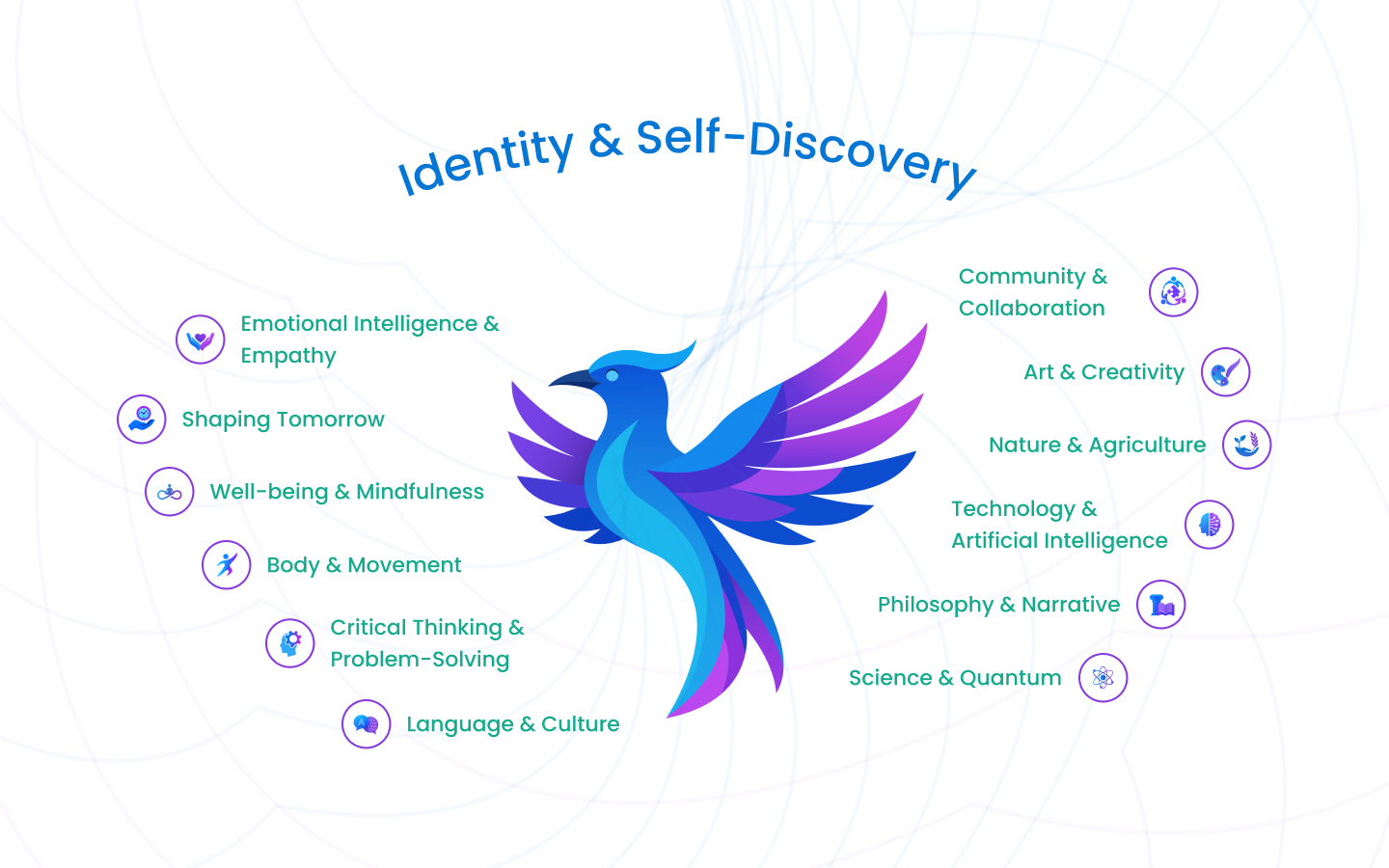Ensuring the security of the personal data of DOPI WAY Prospective Buyers is one of our foremost principles. Based on this principle, we would like to inform you about the personal data processed during the completion of the forms you fill in to request information about DOPI WAY. Within this scope, with the DOPI WAY Prospective Buyer Information Notice, we would like to explain to you;
- The identity of DOPI WAY as the Data Controller,
- which personal data you share with us,
- why we need this information,
- to whom and why we may transfer your information,
- how we obtain your personal information and the legal reasons for this,
- and finally, what your rights are regarding your personal data.
First, let’s share with you some information you may find useful:
➔ What is personal data? Any information that identifies you is your personal data. For example; your name, surname, phone number, education level are just a few of your personal data.
➔ What is Data Processing? Data processing means any kind of operation performed on personal data whether automated or not, such as through IT systems or manually; collecting, recording, storing, transferring, classifying, or preventing its use. For instance, sharing your personal data with us in the DOPI WAY Membership Form is a data processing activity carried out by us.
➔ Who is the Data Controller? The person who determines why and how data processing activities are carried out. In this case, we are a data controller. Who are we?
◆ We are, Doping Bilişim Teknolojileri A.Ş., briefly Doping Bilişim, operating at Yıldız Teknopark, Yıldız Technical University, Çifte Havuzlar Mahallesi, Eski Londra Asfaltı Caddesi, Kuluçka Merkezi B2 Blok No:151/1G Door No:205 Esenler/İstanbul with Tax ID Number 3101275788. Detailed contact information is provided at the end of this Information Notice.
We have shared with you the meanings of terms you may want to know and some information about us. Now we can proceed with our explanations.
1. During the purchase and use of the DOPI WAY digital product, the following personal data is processed.
- From your Identity Information; name, surname, child’s age information,
- From your Contact Information; phone,
- From your Customer Transaction Data; call center recordings, request information, call center personnel notes created about you, in case you share during calls or messaging conducted by DOPI WAY officials at your request; child’s education level and class information, child’s area of interest information, request and demand information, comments and expectation information, explanatory information containing personal data.
- From your Transaction Security Data; confirmation records of legal texts (Information Notice, Explicit Consent Notice, etc.), log records, IP address
- Marketing; the initial communication channel of the prospective buyer (e.g., Whatsapp, incoming call, DOPI WAY Instagram chat)
2. During your purchase and use of DOPI WAY, your personal data is processed based on the following purposes and legal reasons.
The parts indicated as 'data categories' in the processed personal data section cover all personal data listed in section 1. For example, “Customer Transaction Data” is a data category and refers to the personal data listed under Customer Transaction Data in section 1.
2.1. Within the scope of conducting information and promotional processes;
Your processed personal data: Name, surname, phone
Purposes: To contact you regarding your request for DOPI WAY, to inform you, to carry out promotional and marketing activities in line with your request, to conduct communication activities.
Legal Reasons: Processing data is necessary for the legitimate interests of the data controller, provided it does not harm the fundamental rights and freedoms of the data subject (KVKK art.5/2-f).
2.2. Within the scope of resolving potential disputes;
Your processed personal data: Name, surname, phone, call center recordings, confirmation records of legal texts (Information Notice, Explicit Consent Notice, etc.), log records, IP address
Purposes: To prove that our legal obligations arising from the law have been fulfilled during the resolution of any disputes, to ensure the security of you, Doping Bilişim employees and other relevant third parties against any acts, crimes or behaviors contrary to the relevant laws and regulations during the resolution of disputes, to fulfill our obligations arising from laws and legal regulations, and to exercise any litigation, response and objection rights against competent and authorized public institutions and organizations, and to respond to information requests from official institutions such as courts, prosecutors, public authorities.
Legal Reasons: Necessary for the data controller to fulfill its legal obligation (KVKK art.5/2-ç). Necessary for the establishment, exercise or protection of a right (KVKK art.5/2-e).
2.3. Within the scope of server management;
Your processed personal data: IP address
Purposes: Ensuring server management with IP data.
Legal Reasons: Processing data is necessary for the legitimate interests of the data controller, provided it does not harm the fundamental rights and freedoms of the data subject (KVKK art.5/2-f).
2.4. Within the scope of improving service quality;
Your processed personal data: Call center recordings
Purposes: To conduct audit activities aimed at improving service quality, and in this regard, to carry out training activities for customer representatives.
Legal Reasons: Processing data is necessary for the legitimate interests of the data controller, provided it does not harm the fundamental rights and freedoms of the data subject (KVKK art.5/2-f).
2.5. Within the scope of personalized promotion and information processes;
Your processed personal data: Request information, call center personnel notes created about you, notes you create in response to the DOPI WAY information form (if containing personal data), in case you share during calls with DOPI WAY officials; child’s education level and class information, child’s area of interest information, request and demand information, comments and expectation information, other explanatory information containing personal data.
Purposes: Providing personalized information about DOPI WAY specific to your needs by DOPI WAY officials in line with your request (such as contacting us via chatbots, Whatsapp, Instagram, or completing information request forms), carrying out promotional and marketing activities in line with your request, managing processes aimed at improving the prospective buyer experience.
Legal Reasons: Processing data is necessary for the legitimate interests of the data controller, provided it does not harm the fundamental rights and freedoms of the data subject (KVKK art.5/2-f).
2.6. Within the scope of commercial communication and personalized marketing activities;
Your processed personal data: Name, surname, phone
Purposes: Offering personalized campaigns, benefits, promotions, advertisements, conducting profiling, reporting, marketing, and analysis activities for marketing purposes.
Legal Reasons: Obtaining explicit consent (KVKK art.5/1).
In addition, your data in this category is processed based on the legal reasons of explicit stipulation in the laws (KVKK art.5/2-a) for the purpose of recording approvals or rejections related to promotions, marketing, and personalized campaigns in the IYS system, and necessity for the data controller to fulfill its legal obligation (KVKK art.5/2-ç).
NOTE: Even if you have given Explicit Consent and Commercial Communication Permission to receive commercial communications about Doping Bilişim advertising/promotion/marketing processes; you can stop such advertising/promotion/marketing messages at any time and without providing any reason by clicking the “reject” option indicated in the commercial electronic messages we send. In this way, you can terminate the personal data processing based on explicit consent for sending commercial electronic messages.
3. How and by which methods are your personal data collected?
Your personal data are collected based on the above-mentioned purposes and legal reasons; through information systems and electronic devices, online electronic forms, other printed forms, documents declared by the data subject, participation in a meeting or event, e-mail, phone, call records, visual and audio recording devices.
4. To whom and for what purposes can we transfer your personal data shared with DOPI WAY?
4.1. Transfer of data to third parties without the obligation to inform and without seeking explicit consent:
Your personal data may be transferred to relevant authorities without the obligation to inform and without seeking your explicit consent within the framework of KVKK Art.28/1, if requested. In addition, in unforeseeable situations, in cases explicitly stipulated in the laws, your personal data may be transferred to public institutions specified in the laws (such as Ministries and other administrative authorities) within the purposes and limitations set out in the law.
4.2. Processing and transferring your personal data to third parties within the conditions specified in Law art.8:
4.2.1. Suppliers: Individuals and Companies Providing Services
Purposes: Conducting communication activities, in necessary cases; monitoring and detecting suspicious transactions, preventing unlawful activities.
Legal Reasons: KVKK art.5/2-ç; Necessary to fulfill a legal obligation, KVKK art.5/2-f; Legitimate interests of the data controller
4.2.2. To Authorized Public Institutions and Organizations;
Purposes: To provide information and documents to authorized public institutions and organizations and judicial authorities within the cases provided for by law, and to provide information to authorized persons, institutions, and organizations in this context.
Legal Reasons: KVKK art.5/2-ç; Necessary to fulfill a legal obligation.
4.3. We transfer abroad through signing standard contracts and for the purposes stated below within the conditions specified in Law art.9:
4.3.1. Suppliers: Individuals and Companies Providing Services
Purposes: Archiving, use of cloud technologies, operation of technological infrastructures. Execution of established commercial, legal, and contractual relations. Conducting communication activities. In necessary cases; monitoring and detecting suspicious transactions, preventing unlawful activities.
Legal Reasons: KVKK art.5/2-ç; Necessary to fulfill a legal obligation, KVKK art.5/2-f; Legitimate interests of the data controller, KVKK art.9; Transfer of personal data abroad.
5. What are your rights regarding your personal data?
Pursuant to Article 11 of the Personal Data Protection Law, your rights are listed below:
- To learn whether your personal data are processed or not,
- If personal data have been processed, to request information regarding this,
- To learn the purpose of processing personal data and whether they are used in accordance with their purpose,
- To know the third parties to whom personal data are transferred domestically or abroad,
- To request correction of personal data if they are incomplete or incorrectly processed and to request notification of the transaction made within this scope to third parties to whom personal data have been transferred,
- To request the deletion or destruction of personal data in case the reasons requiring processing cease to exist, even though they have been processed in accordance with the provisions of the KVK Law and other relevant laws, and to request notification of the transaction made within this scope to third parties to whom personal data have been transferred,
- To object to the emergence of a result against the data subject by analyzing the processed data exclusively through automated systems,
- To request compensation in case of damage due to unlawful processing of personal data.
You may always submit your requests regarding your rights in accordance with the Communiqué on the Procedures and Principles of Application to the Data Controller, in writing or by using your registered electronic mail (KEP) address, secure electronic signature, mobile signature, or the electronic mail address you previously notified us of and which is registered in our system, to the addresses we specify below. If you wish, you may also submit your application to our Company through the methods set forth in Doping Bilişim Teknolojileri A.Ş. “Data Subject Application Form.” Your request will be concluded free of charge as soon as possible and within thirty days at the latest, depending on its nature. However, if the transaction requires an additional cost, the fee in the tariff determined by the Personal Data Protection Board may be charged.
Data Controller
Data Controller :
Doping Bilişim Teknolojileri A.Ş. (3101275788 VKN / Esenler Tax Office)
E-mail :
info@dopinghafiza.com
KEP address :
dopingbilisim@hs01.kep.tr
Address :
Yıldız Teknopark, Yıldız Technical University, Çifte Havuzlar Mahallesi,
Eski Londra Asfaltı Caddesi, Kuluçka Merkezi B2 Block No:151/1G Door No:205 ESENLER/İSTANBUL
The necessary explanations regarding the processing activities of your personal data are included in this Information Notice. To obtain more comprehensive information on the subject, you can access our policies regarding the protection of personal data at www.dopinghafiza.com. You can also call us if you request more detailed information on this matter.



 Traditional System
Traditional System WAY Learning Methodology
WAY Learning Methodology